Key takeaways:
- Mental health issues, such as PTSD and anxiety, can persist long after disasters, often exacerbated by societal stigma that prevents individuals from seeking help.
- Community resources, including helplines and support groups, are essential for providing immediate emotional support and fostering connectedness among those affected.
- Personal experiences underscore the importance of vulnerability and sharing feelings, reinforcing that mental health is connected to collective experiences.
- Effective coping strategies, such as establishing routines, engaging in physical activities, and creative expression, play a vital role in navigating emotional challenges after disasters.
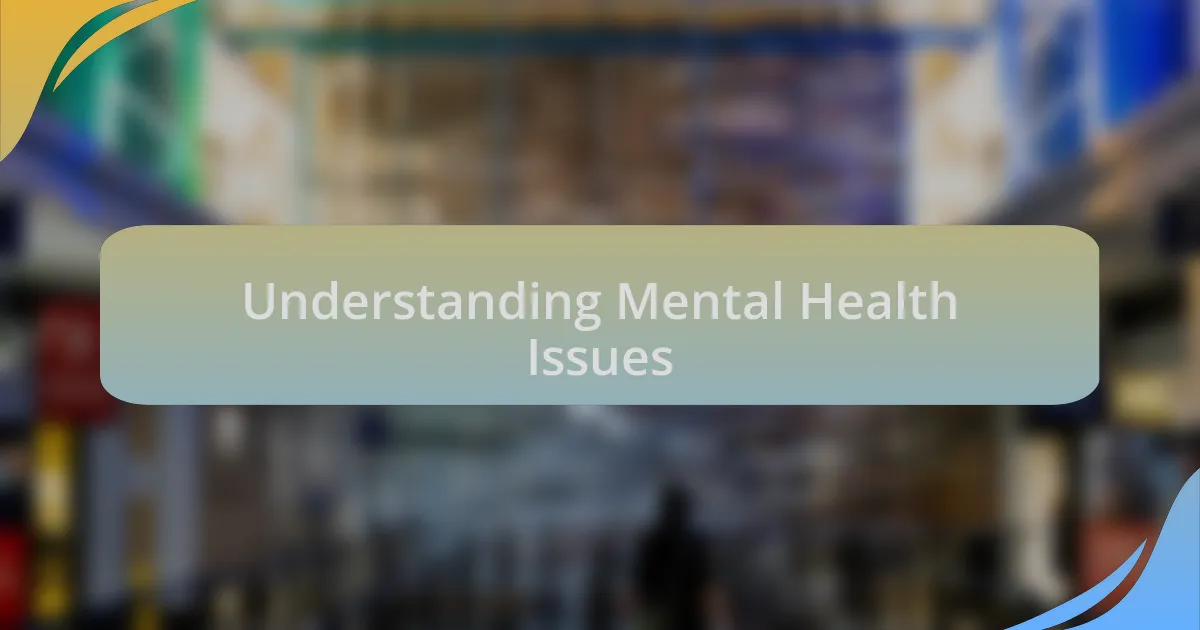
Understanding Mental Health Issues
Mental health issues can arise after disasters, impacting individuals and communities in profound ways. I remember speaking with a survivor who vividly recounted feeling an overwhelming sense of dread and anxiety even months after the event. It made me wonder, how often do we overlook the invisible scars left behind?
One important aspect to consider is the stigma surrounding mental health. People often hesitate to seek help, fearing judgment from others. I once had a friend who suffered in silence, believing that acknowledging their struggles would make them seem weak. Isn’t it ironic how we promote strength while ignoring the very emotions that make us human?
Furthermore, it’s essential to recognize that the effects of disasters on mental health can manifest in various forms, such as PTSD, depression, and anxiety disorders. Personally, I’ve seen how these conditions can disrupt daily life and relationships. When we think about recovery, we must ask ourselves: how can we create a supportive environment that encourages open conversations about mental well-being?
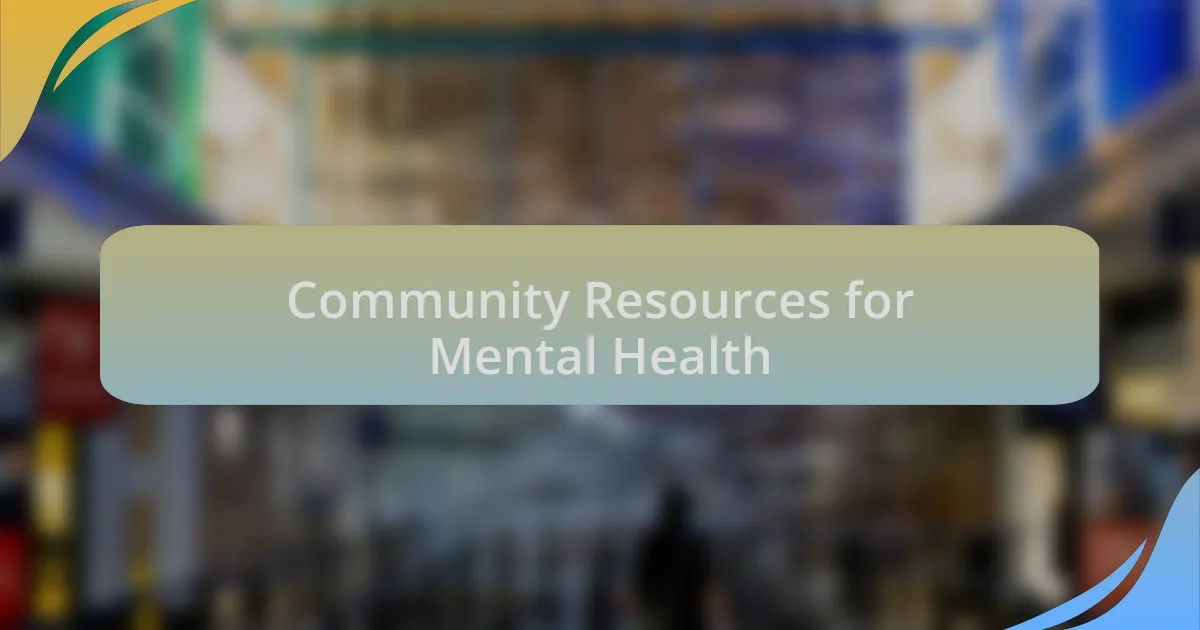
Community Resources for Mental Health
Community resources play a vital role in supporting mental health in the wake of disasters. I recall a community meeting where local organizations came together to share their services, offering everything from counseling to support groups. It struck me how powerful it is to have a network of caring individuals who understand the struggles faced by those affected.
Local helplines and outreach programs can provide immediate assistance to individuals grappling with emotional distress. During a particularly tough time, I reached out to a crisis hotline and found immense comfort in talking to someone who truly listened. Isn’t it reassuring to know that help is just a phone call away, especially in moments when we feel most isolated?
In addition, community centers frequently host workshops focused on mental wellness and resilience. I remember attending one of these sessions where participants shared their experiences and coping strategies, fostering a sense of solidarity. Have you ever experienced the uplifting power of connection with others? Just being in that room made me feel less alone, reminding me of the importance of community support during challenging times.
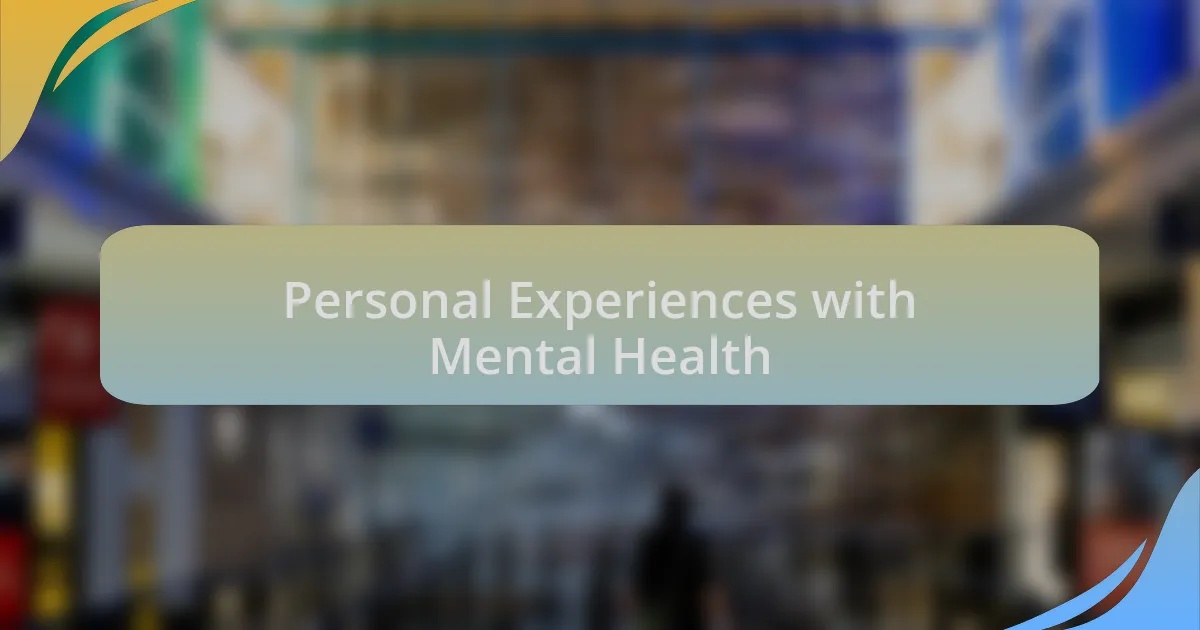
Personal Experiences with Mental Health
I can recall a time when I was deeply affected by a disaster and the ensuing emotional turmoil caught me off guard. I often found myself trapped in a cycle of anxious thoughts, questioning how the world could feel so chaotic while I felt so powerless. Sharing my feelings with a trusted friend was a turning point; it opened the door to discussions about mental health that I had long avoided. Have you ever felt that sense of release when you finally articulate what’s been weighing on your heart?
Another experience that stands out to me is after a major storm devastated our community. I volunteered to help with cleanup efforts, and while doing so, I met a woman who shared her story of loss. Listening to her helped me realize that my own struggles were valid and that everyone was coping in their own way. Isn’t it fascinating how vulnerability can bring people together and foster a deeper understanding of mental health challenges?
Reflecting on these moments, I’ve learned that mental health isn’t just an individual journey; it’s often tied to our collective experiences. I’ve started to see the connection between community engagement and my own mental well-being. In moments of hardship, being open to sharing and listening can transform not just my perspective, but also how we cope together in the aftermath of disasters.
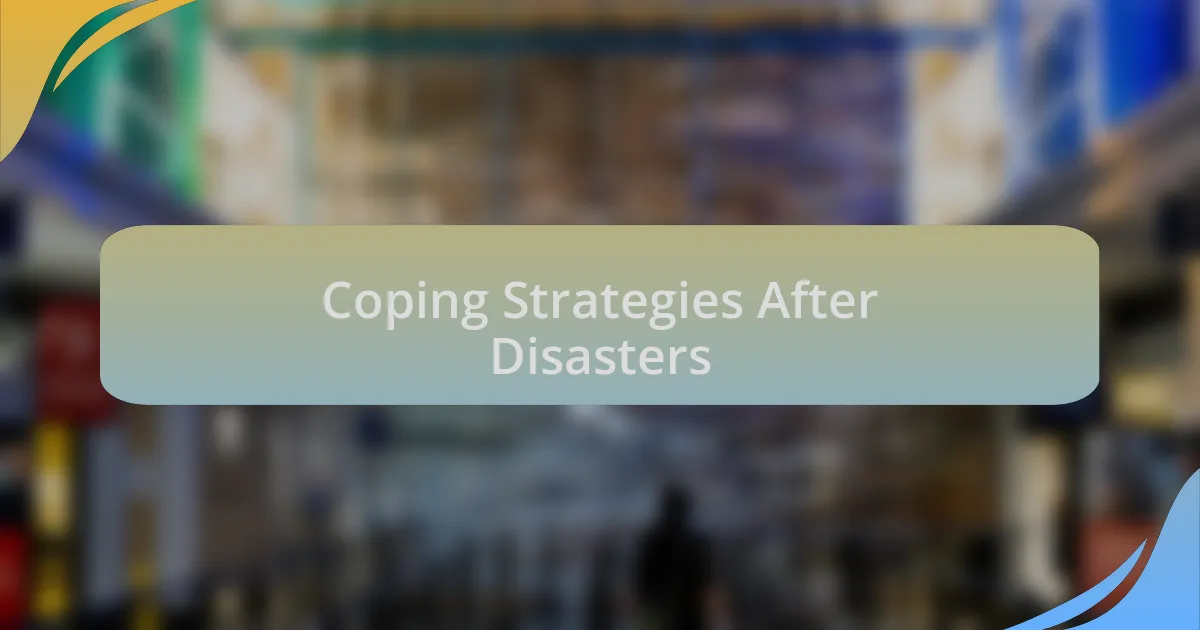
Coping Strategies After Disasters
Coping after a disaster often requires finding new outlets for stress relief. I learned that engaging in physical activities, like going for a walk or practicing yoga, helped ground me when my mind felt scattered. Have you ever noticed how movement can shift your mood? It’s almost as if each step releases the weight of anxiety.
In my experience, establishing a routine became a vital coping strategy. After a disaster struck, I felt lost without structure in my day. I decided to create a simple daily schedule, incorporating time for work, relaxation, and even moments for reflection. This helped restore a sense of normalcy amid the chaos. Have you tried creating a routine during uncertain times? It can be surprisingly empowering.
Lastly, I found solace in creative outlets like writing and art. After witnessing the devastation in my community, I started a journal to express my emotions. I poured my thoughts onto the page, transforming pain into narrative. There’s something truly therapeutic about channeling feelings into creativity. Have you ever considered how creativity could serve as a form of healing? It’s fascinating how these strategies collectively bolstered my resilience and helped me navigate the emotional landscape after disaster.
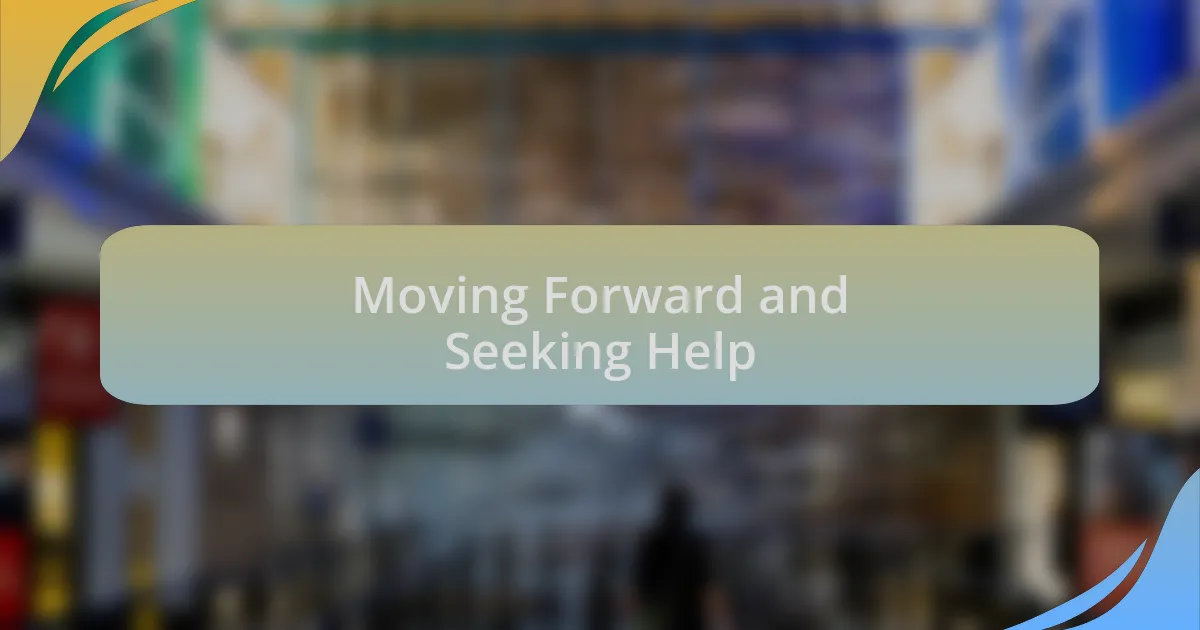
Moving Forward and Seeking Help
Moving forward after a disaster often means acknowledging the importance of seeking help. I remember a time when I hesitated to reach out for support, thinking I should handle everything on my own. One day, a friend encouraged me to visit a local support group, and it was transformative. Have you ever felt that weight lift just by sharing your thoughts with someone who understands?
Admitting that you need help can be a daunting step, but it’s necessary for healing. I discovered that talking to a mental health professional provided me with tools to manage my emotions effectively. Sometimes, all it takes is a fresh perspective to make sense of the chaos in our minds. Have you thought about how a simple conversation could open doors to new healing pathways?
It’s crucial to remind ourselves that seeking help doesn’t indicate weakness; rather, it reflects strength and resilience. I started to embrace therapy not just as a necessity but as a valuable part of my self-care routine. How often do we overlook self-care in favor of merely surviving? Emphasizing our mental well-being can significantly enhance our ability to recover and thrive after a disaster.